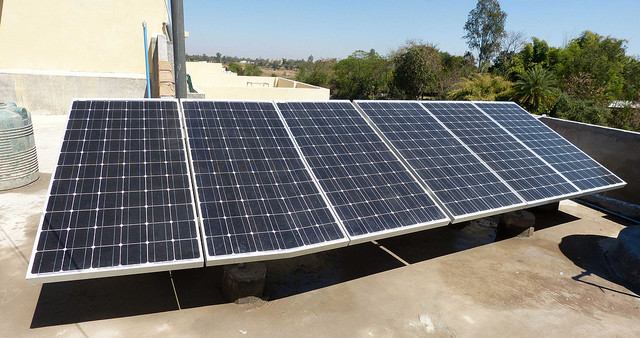As recent market data would suggest, it would appear that Vietnam proved to be a very lucrative market for Chinese solar products. While market data proves this notion to be true, some analysts suggest that this is due to the fact that the local solar market product is also seeing a decline.
In May, the Chinese government put a hold to large utility-scale solar projects. This essentially put a hold to all solar project. In return, the hold capped development 25 percent below when compared to developments done the previous year.
This sudden change in regulation put solar equipment manufacturers in a huge dilemma. Most of these manufacturers have been ramping up their production capacity and at the same time updated their equipment in order to offer a more powerful and more efficient product. Because of this halt, Chinese solar panel manufacturers such as LONGi Solar, JA, and Jinko have been working double time in order to find alternative markets for their products.
These companies have finally found their perfect market in the form of Vietnamese demand. In August, Jinko was able to secure a deal to supply Vietnam 240MW worth of power. On the other hand, Trina Solar scored a similar order for 258MW of power in the same month. As of this writing, JA Solar was able to close a deal to deliver 257MW, while Risen Energy scored a project to provide 62MW, both of which are in Vietnam.
With the growing concern over climate change, countries all over the world are looking to adopt alternative and renewable energy sources. As such, the demands for products like solar panels are expected to skyrocket.
Aside from Vietnam, emerging solar markets such as Mexico and Brazil have already increased demands for solar panels. Europe has also seen the re-emergence of solar panel demands in countries such as Germany, Spain, and the United Kingdom.
In June, just weeks after the Chinese government put a hold to all domestic solar projects, LONGi Group President Li Zhenguo's outlook towards the future of solar equipment market remains positive.
In a statement acquired by Forbes, Mr. Li said, "It will make the industry develop in a faster and [more efficient] way for solar adoption."
He added that while energy demand in China will slow down, this will allow local manufacturers to seek alternative markets to peddle their wares. As China's energy demands continue to stabilize, manufacturers will start to look for alternative markets and this will help stimulate the market.





